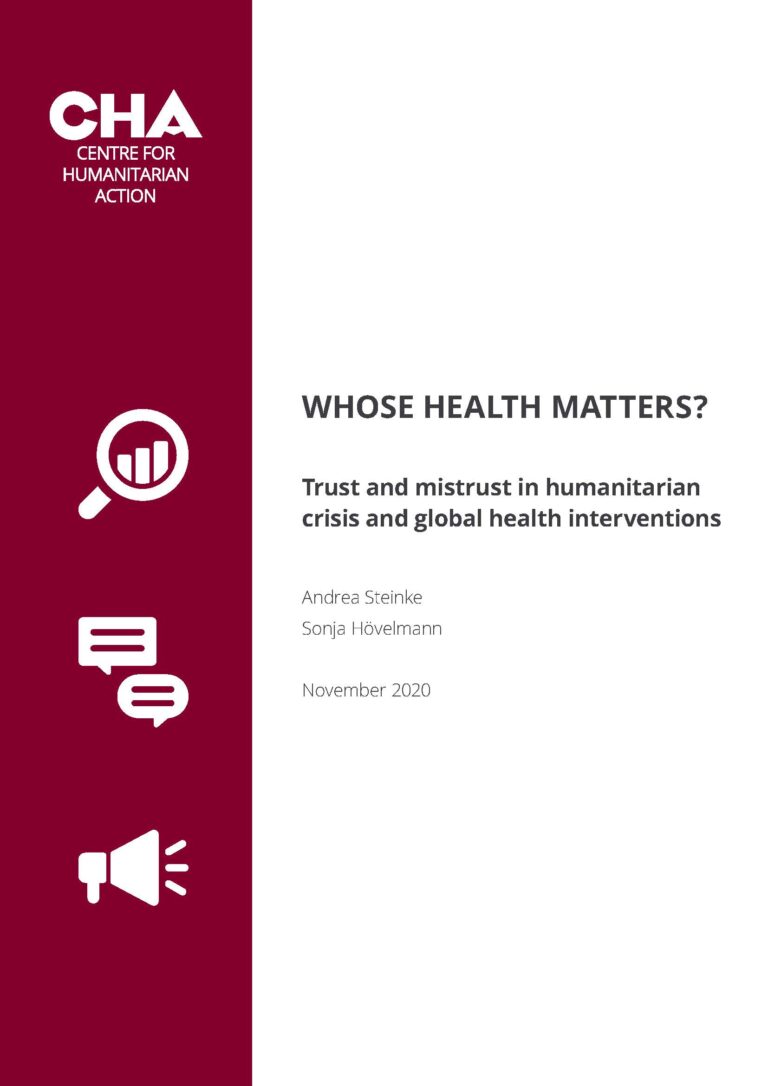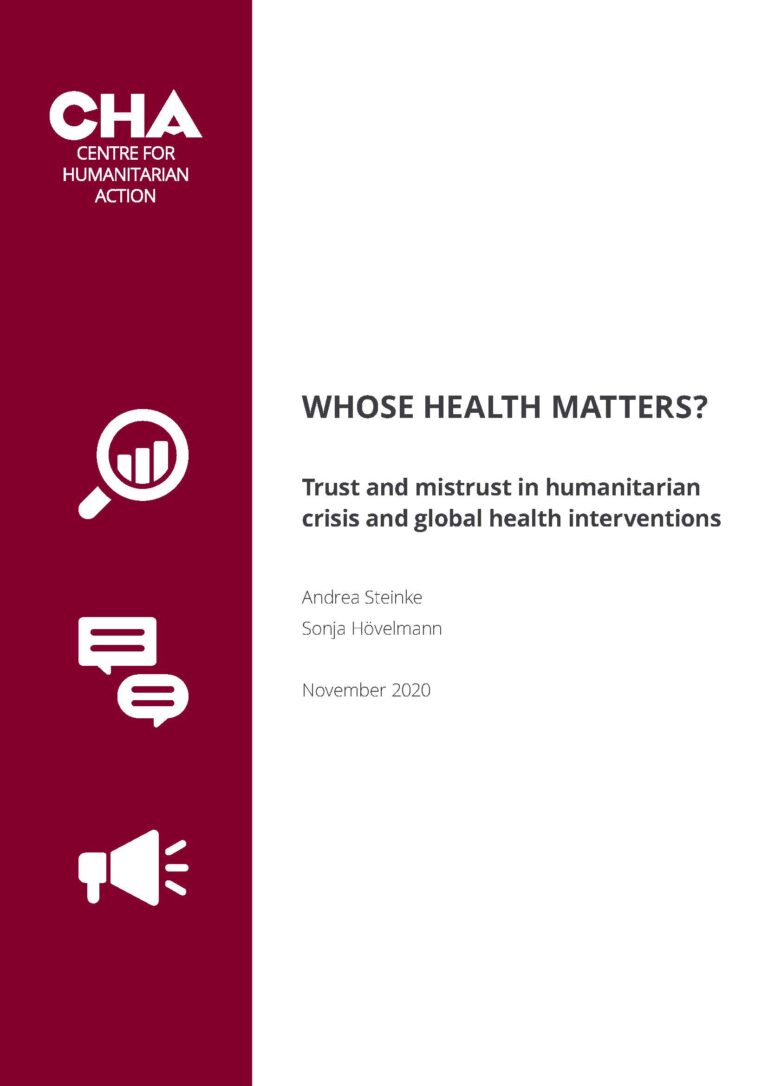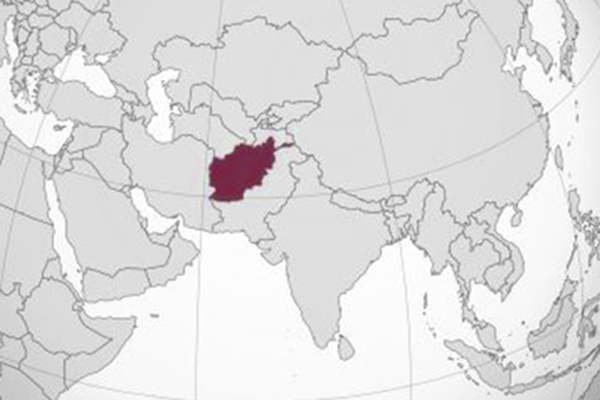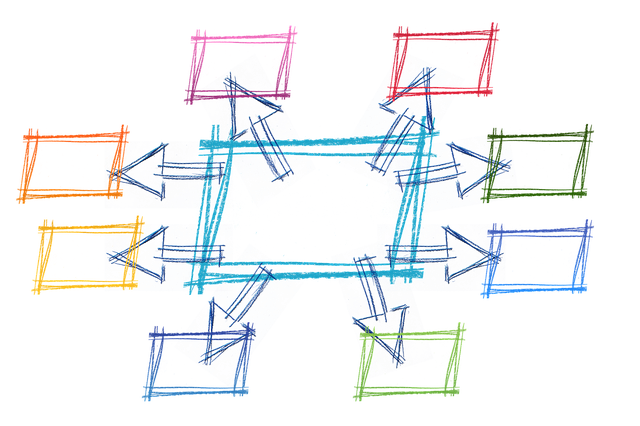| Author: | Andrea Steinke, Sonja Hövelmann |
| Date: | 28.10.2021 |
| Downloads: |
Paper (DE)
Paper (EN) |
Trust and mistrust in humanitarian crisis and global health interventions
Trust and mistrust are often highlighted when explaining scepticism and resistance to humanitarian health interventions. Mistrust, as manifested through rumours, resistance or violence against health workers, is often explained as a lack of knowledge and reason, which is countered through education campaigns or marginalisation of traditional healing methods. By analysing three case studies of global humanitarian health interventions – the Cholera epidemic in post-earthquake Haiti, the Ebola epidemic in West Africa and in the Democratic Republic of Congo as well as the Covid-19 pandemic – Andrea Steinke und Sonja Hövelmann argue, however, that political-economic origins, post-colonial continuities and neo-colonial practices are strong determinants that coin the relationships in global health interventions. By looking at historical, political, economic, and social aspects, we seek to explain that mistrust can also be interpreted as an experience-based, rational reaction shaped by previous atrocities. Normatively framing mistrust in humanitarian encounters as inhibiting the success of interventions avoids addressing more relevant issues able to explain multi-level and multi-dimensional mistrust as rooted in power asymmetries.






